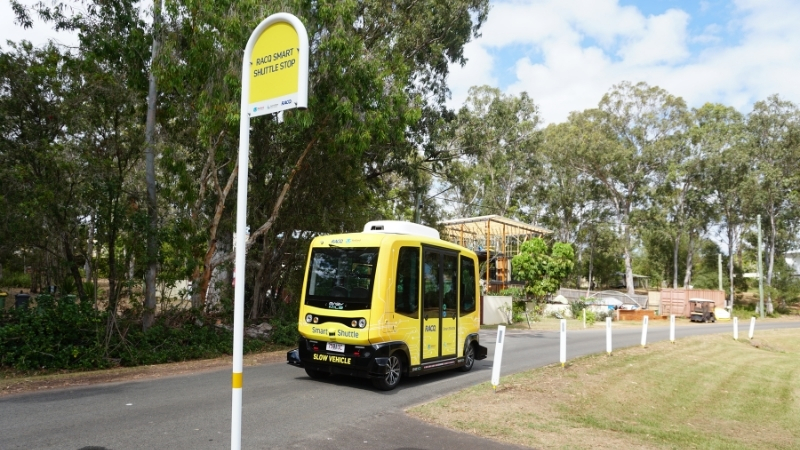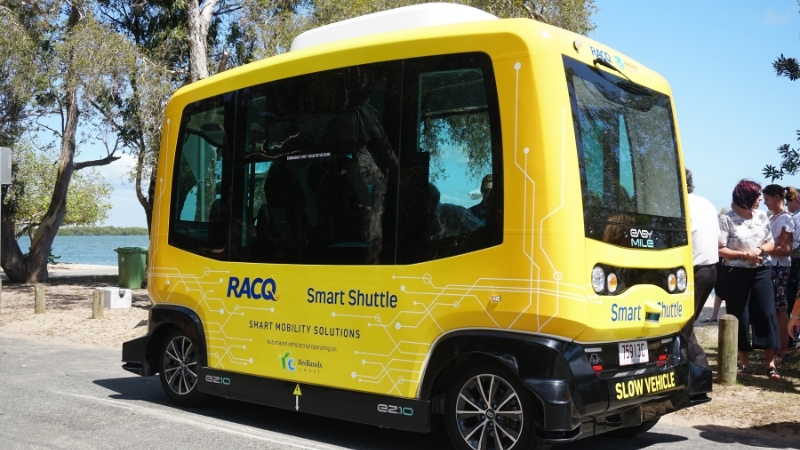Queensland Streets Ahead in Race to Create Smart Cities
Queensland has several flagship masterplanned communities under development, including Ripley, Springfield, Yarrabilba and although a little further away, Flinders.
This puts the local government areas of Ipswich City Council and the City of Logan in an enviable position to lead the rest of the nation as benchmarks for creating truly smart cities.
That benchmark will be measured in large part by how well early-stage masterplanned communities can overcome the major challenge posed by people's dependency on private car ownership and the need to develop effective public transport networks.
According to research, people are put off by public transportation if they need to walk more than 500 metres to catch a bus or train.
Put simply, we prefer to drive—even down to the local shopping centre—which not only creates traffic but also unnecessary parking space pressures.
The parking space dilemma is a problem certainly worth solving.
Historically, we have seen many cities add more parking space to their suburban train stations only to eventually run out of space, and inadvertently creating last-mile traffic congestion with commuters exiting the train station car park during peak hours.
This scenario extends to shopping centres, dining precincts, sporting venues, and the list goes on in highly-urbanised suburbs, especially during weekends and around special events.
Because Queensland’s flagship masterplanned communities are starting from almost a blank canvas, they can work closely with the local government area and public transport authority and autonomous transport solutions providers like industry leader EasyMile to integrate urban design and autonomous vehicle technology to address any first- or last-mile transportation blackspots and make public transport more appealing.

This is a very important narrative, especially considering the vision of communities such as Springfield for people to live and work locally.
Currently 47 per cent of Ipswich workers work locally but only two per cent commute to work via public transport.
Imagine how much space could be used for anything but parking if public transportation became a more attractive option?
Masterplanned community developer Sekisui House Australia, the developer behind the Ecco Ripley and Ripley Town Centre masterplanned communities, says connectivity is “critical to manage future transport demand, and will ultimately affect the region’s and south-east Queensland’s ability to compete globally, grow sustainably and achieve high-quality living outcomes for the community”.
In addition to preparing for a much-needed rail connection (between Ipswich Central and Springfield Central), the developer is also exploring opportunities for an autonomous transport solution to connect residences to key transport infrastructure as it looks to future proof against the projected growth of the region— approximately 133,800 new residents by 2036.
Masterplanned communities can lead the way by delivering on their integrated transportation and smart mobility vision.
Many cities around the world want to promote active modes of transportation such as cycling and walking, however, uptake can be mixed, with safety concerns often cited as a key deterrent.
Building townships from scratch gives masterplanned communities the advantage of creating “complete streets” ripe for shared autonomous transport.
These streets are designed and operated to enable safe access for all users, including pedestrians, bicyclists, motorists and transit riders of all ages and abilities—which in turn can facilitate a truly smart mix of transportation options.

To date, what we’ve learnt is the modern city is one that will be smart and connected: not just from a data perspective but a truly physical one, where people can move seamlessly from point A to point B using a multimodal array of travel options including scooters, ride-sharing, e-bikes, autonomous shuttles.
The transition has not been straightforward, because our streets have not been built to safely accommodate these new means of transport.
But Queensland is in the box seat to change this.
The Sunshine State’s visionary masterplanned communities, located in one of Australia’s fastest population growth corridors, have the advantage of doing things differently from predecessors by creating truly smart cities.
Autonomous vehicles are already solving first and last mile transport challenges around the world, and they can deliver the same impact in Logan and Ipswich.
The reward of a smart and autonomous first- and last-mile solution offers a plausible return on investment: it will not only reduce the dependency on private vehicles, unlock economic benefits, create sustainable communities through integrated land use but also improve property value.
To find out more about how these benefits have been delivered in other smart MPCs, please drop EasyMile a line.
The Urban Developer is proud to partner with EasyMile to deliver this article to you. In doing so, we can continue to publish our free daily news, information, insights and opinion to you, our valued readers.














